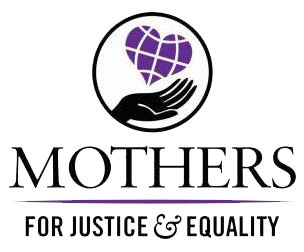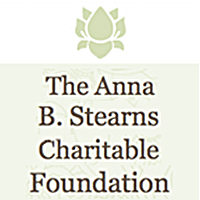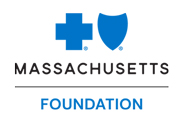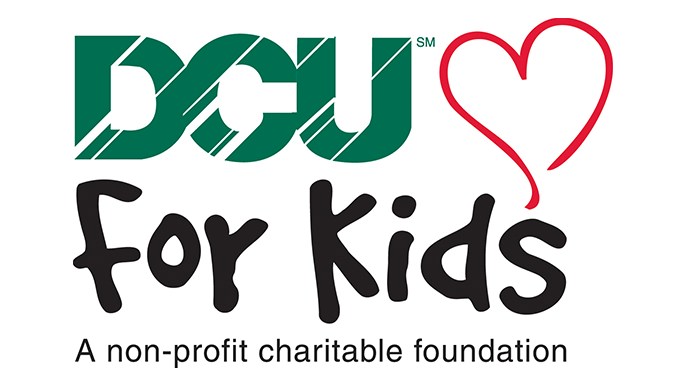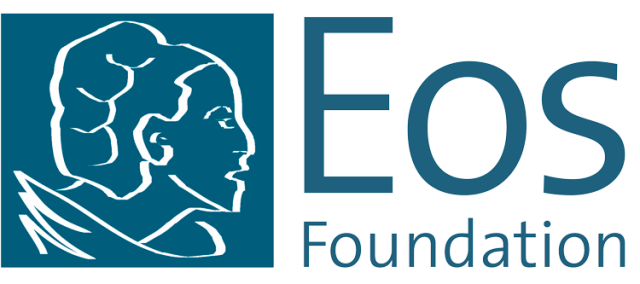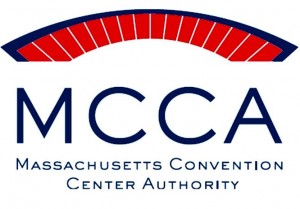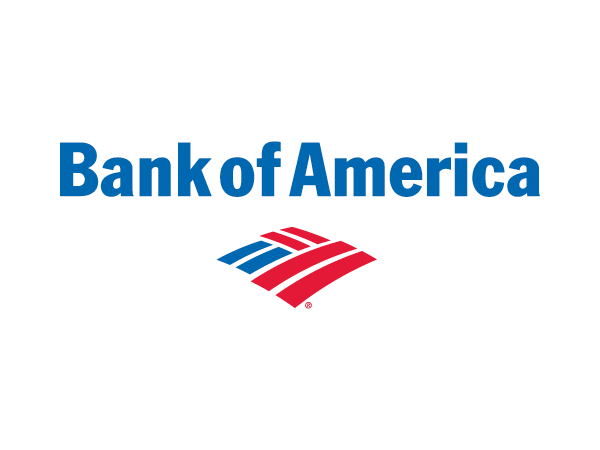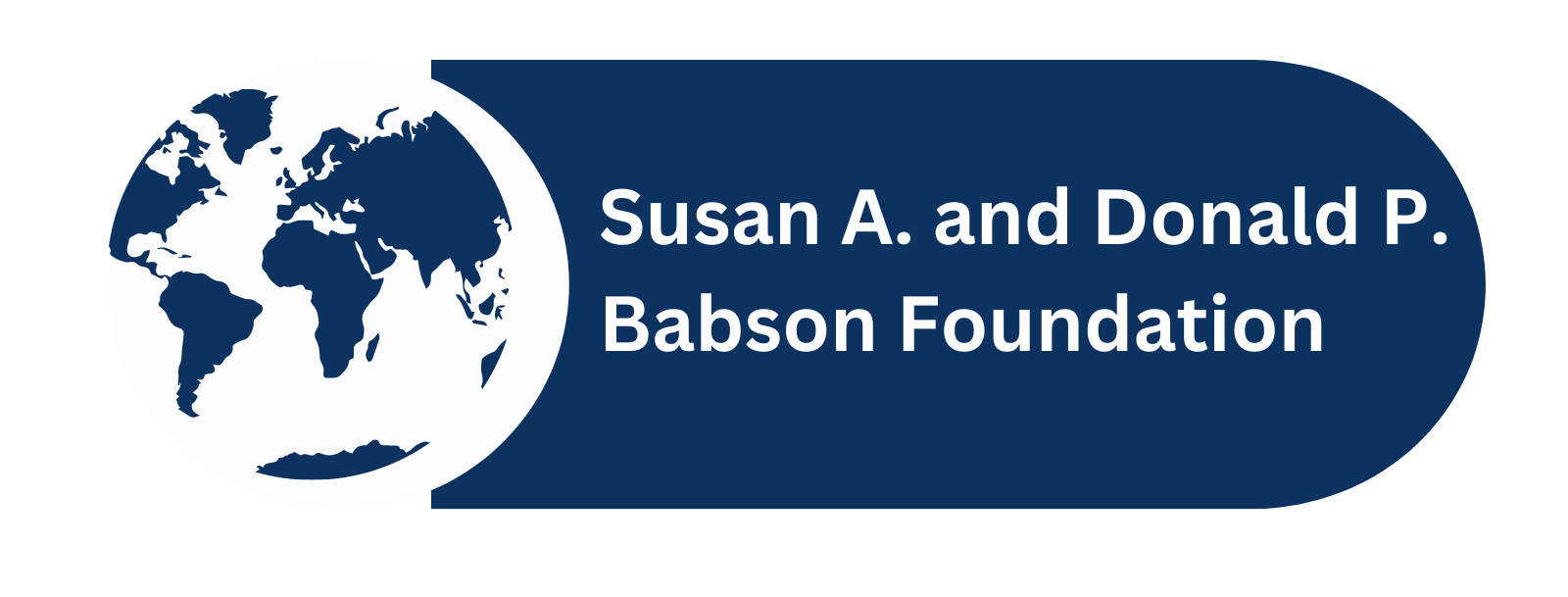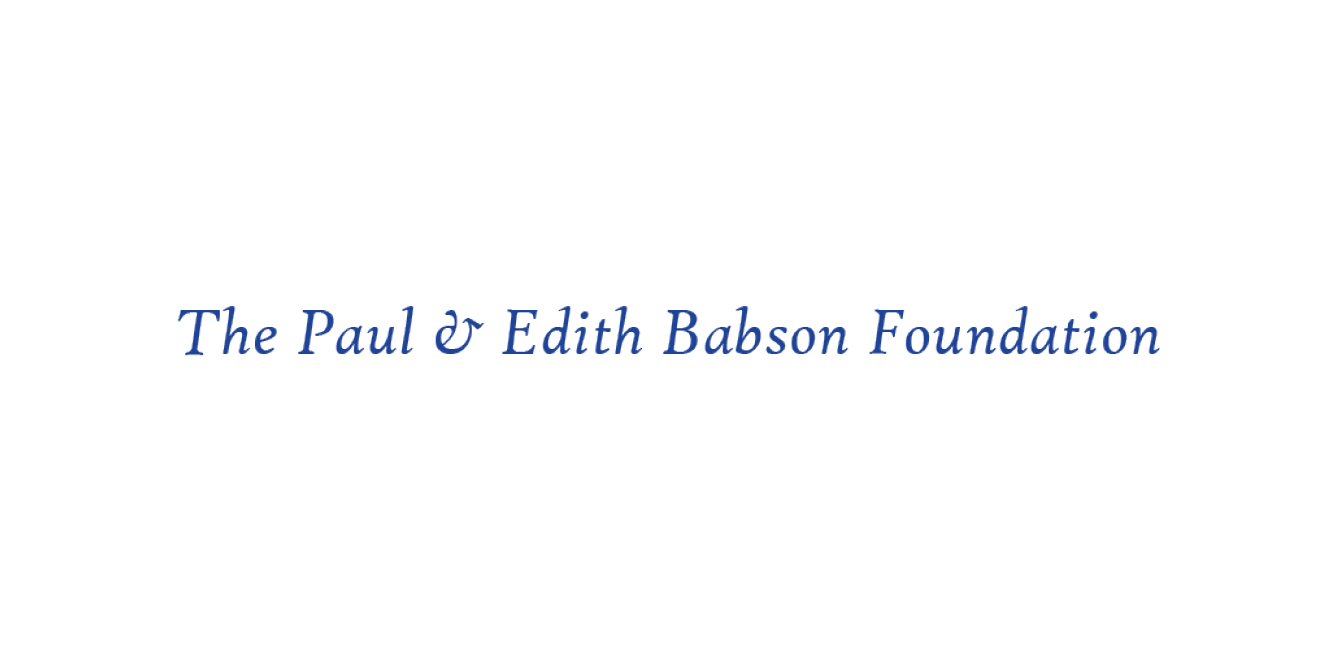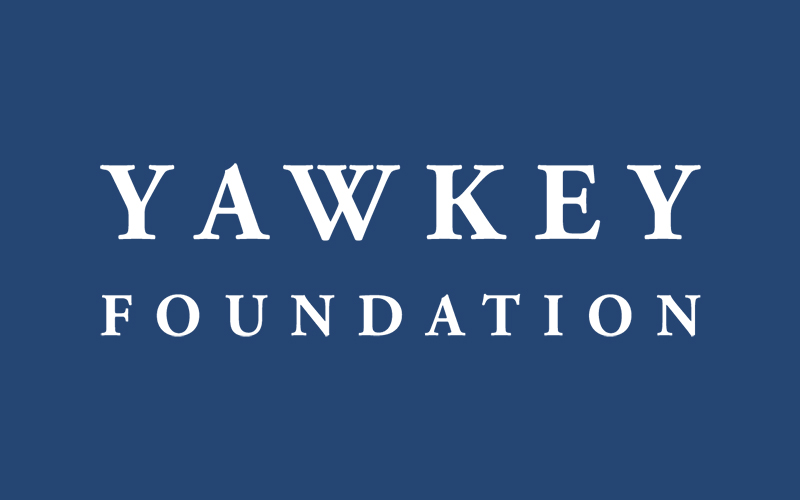Adult Education and Workforce
MJE’s Adult Education and Workforce Development program supports victims of trauma facing chronic unemployment to become a force for community action and a candidate to re-enter the workforce.
MJE tables at approximately 50 events per year to reach community members not otherwise identified and network with partners. St. Mary’s Center for Women and Children coordinates training for MJE programs. MJE receives client referrals from agency partners, including the Department of Transitional Assistance, the Department of Youth Services, Brigham Women’s Hospital, and more.
Step 1
Individualized Service Plan (ISP)
Step 2
Trainings
Step 3
Case Management

Step 1: Individualized Service Plan (ISP)
At intake, MJE defines an ISP to determine needs along five tracks for each individual: Family Stability, Well-Being, Financial Management, Education, and Employment. The ISP is a working document that follows the participant throughout all components of those engagements.
Step 2: Trainings
Clients will typically begin with a two-week trauma-recovery and financial literacy training followed by case management and career readiness trainings, including computer literacy, on-site trainings, referrals to vocational programs, internships, and more. These programs align with a participant’s interests in high-demand industries to ensure employment.
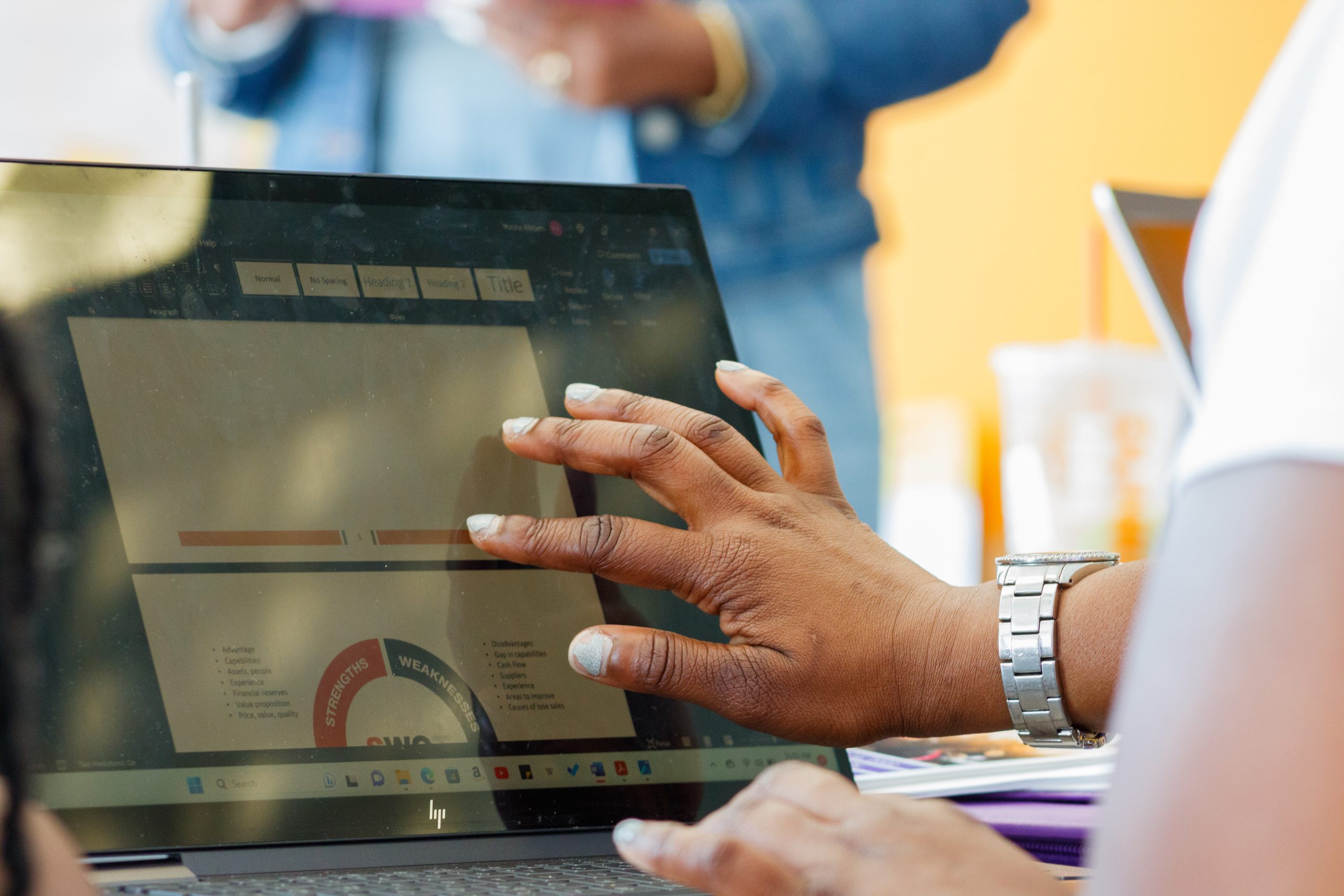
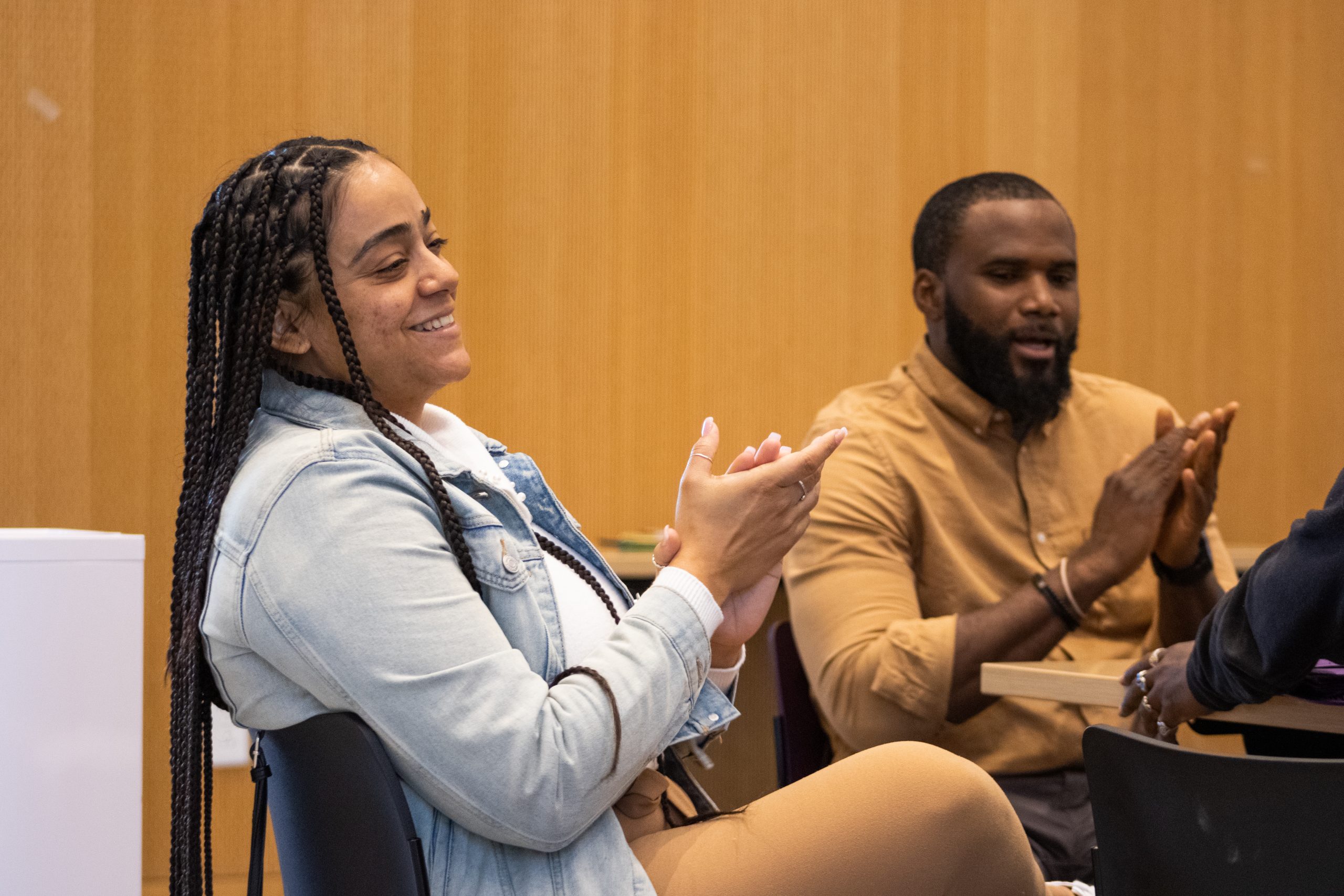
Step 3: Case Management
Case Managers provide ongoing support to identify emerging challenges and provide resources to ensure success. The trauma-sensitive environment of our office space and mentoring helps participants reenter the workplace after extended unemployment.
This project was (partially) supported by the Massachusetts Office for Victim Assistance through a Victims of Crime Act of 1984 (VOCA) grant from the Office for Victims of Crime, Office of Justice Programs, U.S. Department of Justice.”
–Mental Health America 2021 Report
2022 Outcomes
2,767 adult clients enrolled in programs and trainings at MJE
%
Received Personal Advocacy
%
Received Emotional Support and Safety Services
%
%
Received Information and Referral Services
%
